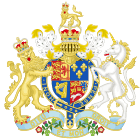Administration of Justice Act 1774 facts for kids

|
|
| Long title | An act for the impartial administration of justice in the cases of persons questioned for any acts done by them in the execution of the law, or for the suppression of riots and tumults, in the province of the Massachusetts Bay, in New England. |
|---|---|
| Citation | 14 Geo III c.39 |
| Territorial extent | Province of Massachusetts Bay |
Quick facts for kids Dates |
|
| Commencement | 20 May 1774 |
| Text of statute as originally enacted | |
The Administration of Justice Act, also known as the Act for the Impartial Administration of Justice, was a law passed by the Parliament of Great Britain. It became official on May 20, 1774. Many American colonists called it the "Monkey Act" or "Murder Act." They used these names because they believed the law was unfair and could allow British officials to avoid punishment for serious actions.
This law was one of several measures that Great Britain put in place to strengthen its control over the American colonies. These laws are often called the Intolerable Acts, the Punitive Acts, or the Coercive Acts by the colonists. They are also listed as some of the complaints in the United States Declaration of Independence.
Contents
What Were the Coercive Acts?
The Coercive Acts were a group of laws meant to punish the American colonists, especially those in Massachusetts, after the Boston Tea Party. Besides the Administration of Justice Act, these laws included:
- The Boston Port Act, which closed Boston Harbor.
- The Massachusetts Government Act, which changed how Massachusetts was governed.
- The Quebec Act, which expanded the territory of Quebec.
Why Was This Law Created?
The Administration of Justice Act was designed to make sure that British officials accused of crimes in the colonies would have trials that were more favorable to the British government.
How Did the Act Work?
- The Act allowed the royal governor to move the trial of a British official to another British colony or even to Great Britain itself.
- This was done if the governor thought the official would not get a fair trial from local juries in Massachusetts.
- Colonists often served on juries, and the British government believed these juries might be biased against British officials.
Why Was It Called the "Murder Act"?
Colonists called it the "Murder Act" because they feared it would allow British officials to escape justice for serious crimes. If a British official was accused of harming or even killing a colonist while enforcing British laws or stopping riots, their trial could be moved far away. This made it very hard for colonists to get justice. Witnesses from both sides were supposed to attend the new trial and have their travel costs paid. However, colonists believed this system would protect British officials more than it would protect the rights of the colonists.
 | Victor J. Glover |
 | Yvonne Cagle |
 | Jeanette Epps |
 | Bernard A. Harris Jr. |

